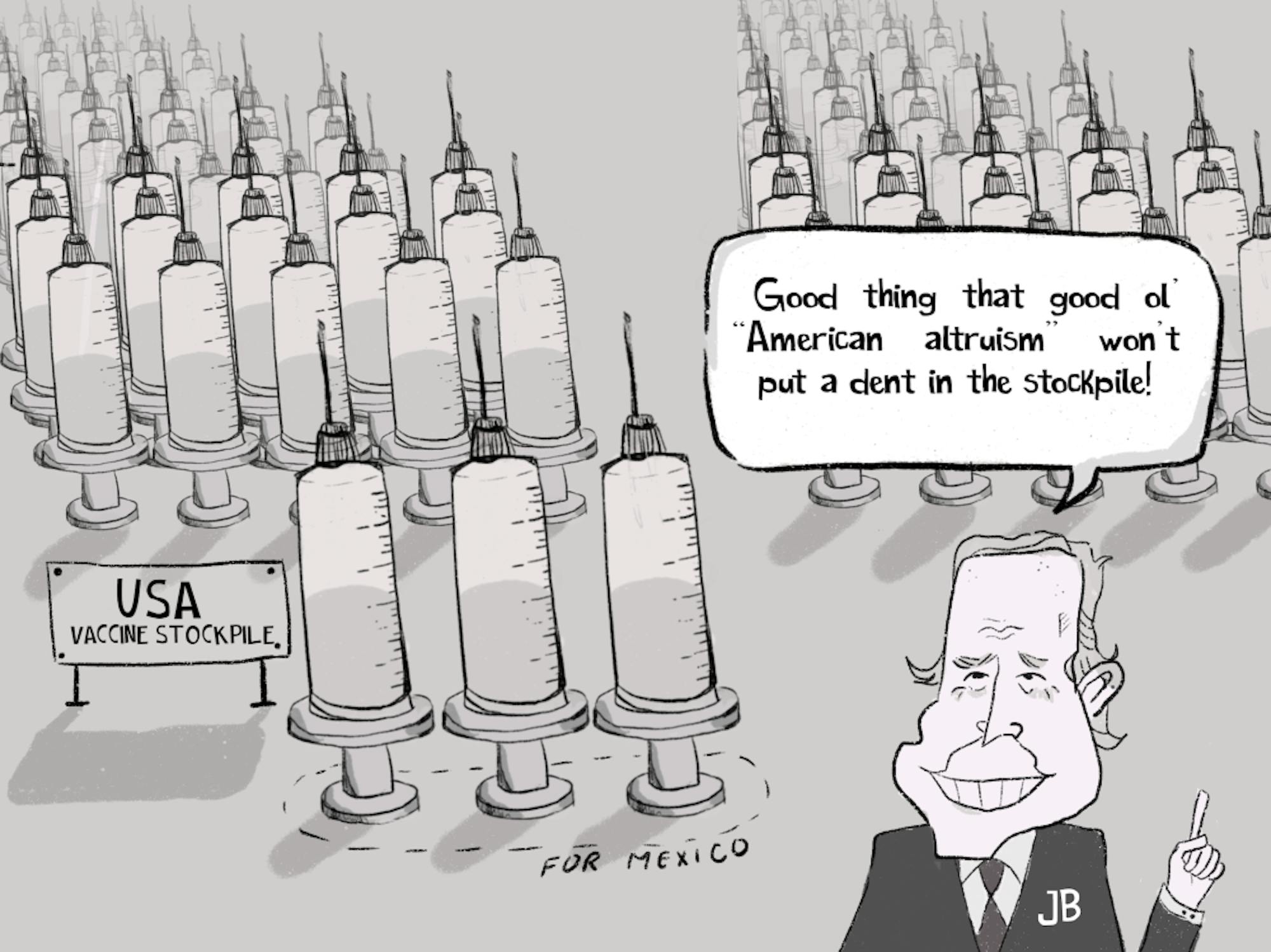Possessing one of thelargest stockpiles of COVID-19 vaccines, the United States holds special weight when it comes to distributing the vaccines worldwide, and the concept of "vaccine diplomacy" is becoming an evermore important buzzword for American foreign policy.
Policymakers, however, increasingly view the United States’ COVID-19 response as a weaponized diplomatic tool. This perception works to no one's benefit and more fundamentally exposes a half-heartedness and fragility to U.S. foreign policy that does not bode well for the return of American global leadership in the near future.
At the core of this weaponized model of vaccine diplomacy lies the national anxieties that made up the core of "America first" and that now pervade vaccine policy, shaping the issue into a matter of national security and foreign policy.
This need to "securitize" vaccines is driven by the now all-too-common feelings of individual, social and national insecurity that the pandemic has highlighted and exacerbated across the country.The botched initial response to the pandemic left the United States as themost COVID-19-ridden country on the face of the earth.By summer, polls began showing a growing loss in social trust and national pride.The national unease brought a moment of renewal for anti-vaxxers and other conspiracy theorists who shouted through their keyboards about "plandemics," cabals andBill Gates to a receptive audience facing a shattered world.
These factors all aided in catalyzing the political violence that transpired during the Capitol insurrection on Jan. 6, an event that has been considered the firstAmerican self-coup. China, meanwhile, leveraged the opportunities arising from America's internal upheaval by challenging the United States militarily in the South China Sea and assuming a leading role in supplying the world with vaccines and desperately needed medical equipment. Needless to say, many saw 2020 as the poignant end of American primacy.
For an America scarred internally and scorned internationally, the vaccine was a path toward renewed security and power. After our annus horribilis, the world has seen the fragility of American cohesion and has questioned the country’s claims to hegemony. Back to normal as fast as possible, as such, is not as much the preference of a rich country that can afford it, but rather a necessity for its survival.
This is the rationale that attempts to justify the fact that for every one American there are about four vaccine doses reserved.Meanwhile, in the whole of Africa, that numberbarely reaches 0.2doses per person. In all, only 10 countrieshave administered about three-fourths of all vaccine doses. For the United States, this hoarding is symptomatic of a desperation to prevent the next wave of social unrest — one jab at a time, all the while disregarding the Global South's struggles, where many countries may not receive enough supply to vaccinate the majority of their populations until several years down the line.
Even while some semblance of self-denial has found its way into U.S. foreign policy, the thinness of promises made is hard to miss. Biden’s donation of more than 2.5 million AstraZeneca doses to Mexico, while amounting to the largest vaccine transfer from one country to another, seems meaningless when considering America’s 300 million strong AstraZeneca stockpile might simplyend up unused.
In other less publicized instances, the vaccine paranoia has been more clear. In February, the United States backed other rich nations inopposing a waiver to the Agreement on Trade-Related Aspects of Intellectual Property Rights, which would allow for widespread production of COVID-19 vaccines and other treatments without infringing on international property rights.This arrangement benefits Moderna and Pfizer the most, the country’s vaccine champions, who are now the face of American power, centrality and indispensability in the same vein that other powerful entities, like Google, Amazon and Facebook, have been for decades.
The vaccine is also key to recouping power vis-a-vis China. President Biden took the opportunity this March during the first summit of the Quadrilateral Security Dialogue, the joint project of Australia, India, Japan and the United States to contain China, to announce the bloc'svaccination initiative. Not surprisingly, great power competition infuses the core of this joint project, as the Quad members aim to provide their vaccines to Southeast Asia as a means of keeping China's out.
The U.S. posture is a shrewd reminder that in international politics, altruism will almost always come second. Even while Americans have often played the role of the good Samaritan worldwide, especially in the realm of global health, right now, we are a country backed into a corner, looking to claw our way back. Internally, even as the choice to not widely share the vaccine incurs heavy costs — the loss of countless lives around the world and billions of dollars in trade — large stocks and lofty promises are upheld as a matter of national security. Externally, vaccines offer an avenue to regain the world's adoration, thus transforming into a central component of a foreign policy seeking to protect American hegemony. Until the United States feels safe, the rest of the world will not be.






